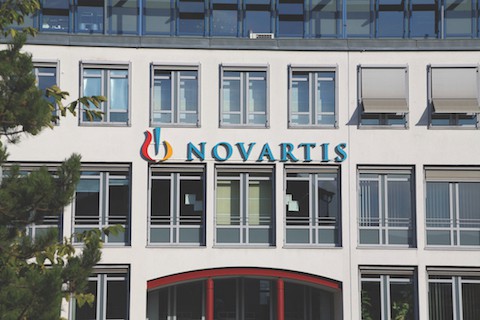
Novartis has announced detailed results from its pivotal phase 3 APPLY-PNH trial, in which its oral monotherapy iptacopan demonstrated superiority over anti-C5 therapy in adult patients with paroxysmal nocturnal haemoglobinuria (PNH) experiencing residual anaemia despite prior treatment with anti-C5 therapy.
Results from the study, which the company presented at the 64th American Society of Hematology Annual Meeting and Exposition in New Orleans, Louisiana, showed an estimated 82.3% of iptacopan-treated patients achieved haemoglobin-level increases of 2g/dL or more from baseline without the need for red blood cell transfusions, compared to an estimated 2.0% of anti-C5-treated patients.
For the second primary endpoint, an estimated 68.8% of iptacopan-treated patients achieved haemoglobin levels of 12g/dL or more without the need for blood transfusions, compared to an estimated 1.8% of anti-C5-treated patients.
Iptacopan also showed superiority over anti-C5 therapy across most secondary endpoints, including change from baseline in haemoglobin levels, blood-transfusion independence, patient-reported fatigue, absolute reticulocyte – immature red blood cells – counts and rate of clinical breakthrough haemolysis.
PNH is a rare, chronic and life-threatening blood disease, affecting approximately ten to 20 people per million worldwide.
Those with the disease have an acquired mutation in some of their haematopoietic stem cells that causes them to produce red blood cells susceptible to premature destruction by the complement system, which can cause anaemia, thrombosis, fatigue and other debilitating symptoms that can impact quality of life.
The disease has a significant unmet need not addressed by anti-C5 therapies, Novartis reports, and despite treatment with anti-C5s, a large proportion of people with PNH remain anaemic, fatigued and dependent on blood transfusions.
Iptacopan acts upstream of the C5 terminal pathway, preventing both intravascular and extravascular haemolysis in PNH, meaning iptacopan may have a therapeutic advantage over anti-C5 therapies by targeting a key part of the biology responsible for PNH while offering an oral monotherapy option.
Study principal co-investigator, Professor Régis Peffault de Latour of Saint-Louis Hospital, Greater Paris University Hospital, said: “More than half of patients with PNH experience residual anaemia despite treatment with anti-C5 therapy and many remain dependent on blood transfusions during treatment, largely due to unaddressed destruction of red blood cells in the spleen and the liver – called extravascular haemolysis.
“The phase 3 APPLY-PNH results show oral iptacopan was superior in resolving extravascular haemolysis and maintaining intravascular haemolysis control compared to intravenous anti-C5 therapies – a potentially groundbreaking benefit for those living with this chronic blood disorder.”




